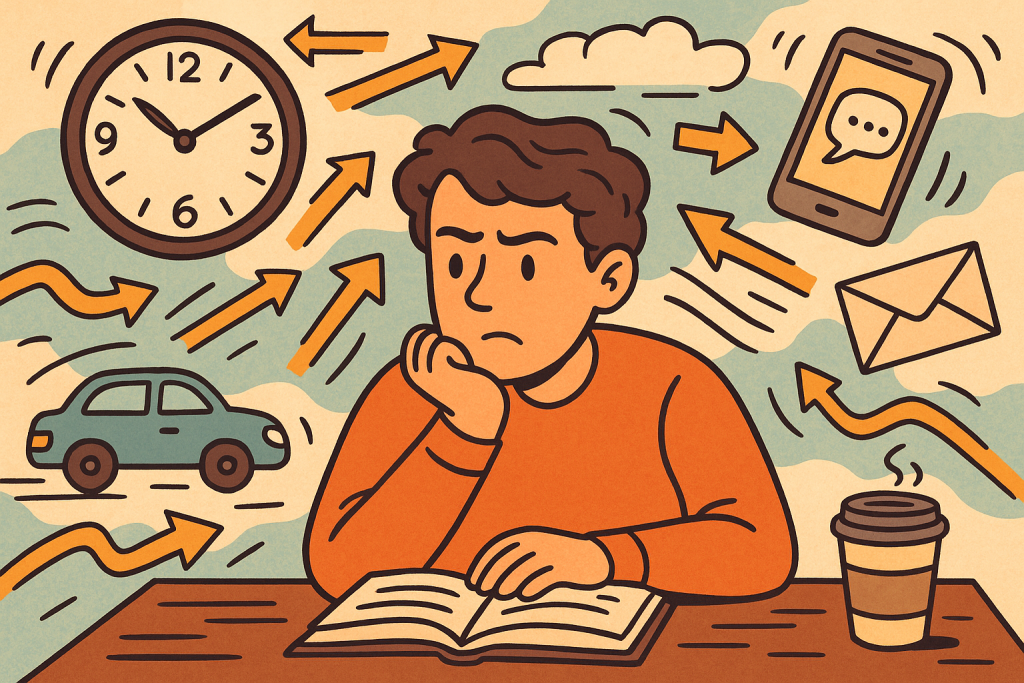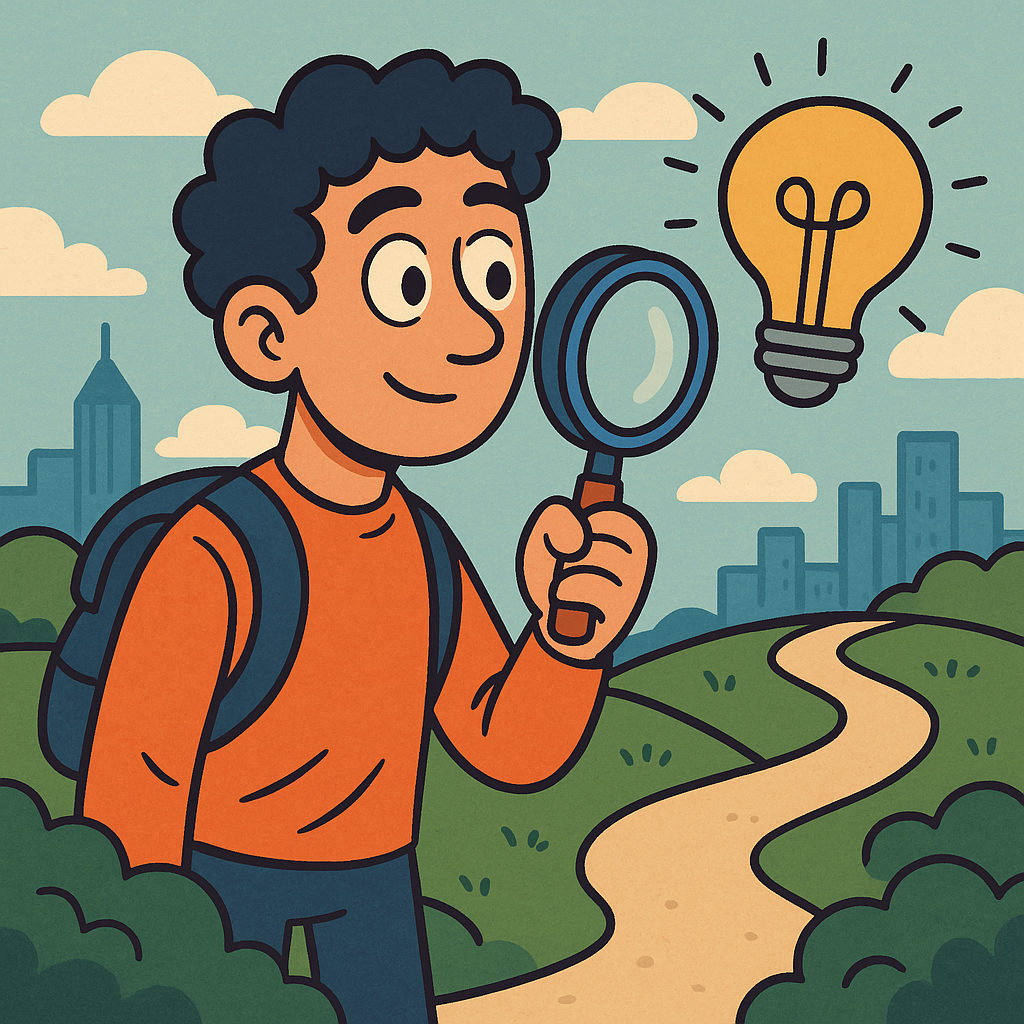In a world filled with constant pings, AI prompts, and overload, the question isn’t “Can you keep up?”—it’s “Can you think clearly?” This guide explores practical, research-backed methods to think more clearly in a world that moves fast, offering effective routines, tech tools, and cognitive safeguards to reclaim your mental edge.

Why Clear Thinking Matters More Than Ever
In 2025, Gen Z and Millennials are increasingly critical of their digital habits—over 86% are actively reducing social media time, and 26% attempted full digital detoxes, all to improve mental health and clarity.
But it’s not just about stepping away from screens—it’s about building habits and systems that help you think more clearly in a world that moves fast. Two main disruptors affect your thinking:
- Continuous partial attention: Switching between tasks limits working memory and creative thinking.
- AI cognitive offloading: Relying too much on AI tools can diminish critical thinking.
Let’s dig into how to counter these challenges.
1. Digital Detox & Slow Tech
- Why it matters: Regular screen detox resets your brain, reduces overload, and improves focus .
- Quick tips:
- Designate screen‑free zones or times—like a tech‑free bedroom or one evening per week.
- Try “silent walking”: a viral TikTok trend of phone‑free walks boosting creativity and reducing stress.
- Longer retreats: Consider “unplugged travel”—remote getaways where screens are swapped for nature, reflection, and stillness.
2. Manage Cognitive Load & Decision Fatigue
- Know the enemy: Decision fatigue builds throughout the day, reducing clarity and willpower .
- Tools to fight it:
- Time‑blocking/Pomodoro: Keep single‑task focus sessions with short rests.
- Simplify choices: Delegate less important decisions—choose a default outfit, streamline meals.
- Heuristics: Use mental shortcuts (“good‑enough” decisions) to conserve mental energy.
3. Structure Your Thinking Routines
In a fast-moving world, routines help you stay anchored. Here’s how:
- Morning clarity ritual
- Either meditate for 10 minutes (research links meditation to thicker prefrontal cortex and better focus)
- Or start with a “brain dump”: jot key priorities and ideas.
- Midday reset
- Take 15–20 min quiet walk or digital‑free coffee break to recharge.
- Evening review
- Journal reflections: what went well, what drained you, what choices felt automatic.
4. Mindfulness + Single‑Task Focus
- Mindfulness benefits: Daily meditation or mindfulness practice improves sustained attention and mental resilience.
- Apply to work:
- Use apps like Headspace or OFFTIME for short focus sessions.
- Label incoming thoughts—e.g., “work,” “worry,” “future”, then drop them to re-focus.
5. Use AI Smartly—Don’t Let It Think For You
AI can support clear thinking—but overdependence harms your ability to analyze and reason:
- Study findings: Heavy AI users show weaker critical thinking, mediated by cognitive offloading.
- How to balance it:
- Use AI for ideas, drafting, fact‑checks—but always question and refine its output.
- Try “ExtendAI”-style tools that build on your reasoning rather than replacing it.
6. Physical Habits That Support Mental Clarity
Your body fuels your mind—don’t neglect it:
- Sleep: 7–9 hours nightly allows your glymphatic system to flush toxins and consolidate memory.
- Movement: Aerobic exercise improves blood flow and supports neurogenesis—just a brisk 20‑min walk helps.
- Nutrition: Focus on leafy greens, omega‑3 rich foods, berries, hydration, and limit alcohol/caffeine.
7. Minimalism & Mental Space
Decluttering isn’t just physical—it’s mental:
- Simplified surroundings reduce stress, improve focus, and support intentional living .
- Keep your workspace clean, remove unused apps, and close unused browser tabs.
Bonus: Build Your Mental Fitness Toolbox
- Brain games (e.g., puzzles, learning languages) enhance cognitive control and adaptability.
- Social clarity: Discuss ideas with trusted peers—social engagement stimulates cognitive growth .
- Celebrate progress: Track improvements—like better focus or fewer decision regrets—to stay motivated.
Integrating It All
| Area | Practice | Outcome |
|---|---|---|
| Digital | Screen‑free time/retreats | Reduced stress, clarity |
| Cognitive | Time‑block, heuristics | Less fatigue, higher energy |
| Mindful | Meditation, silent walks | Calm, focus, creativity |
| AI Use | Complement, question its output | Maintained critical thinking |
| Physical | Sleep, exercise, nutrition | Brain performance boost |
| Environment | Minimalist workspace | Fewer distractions |
In Summary
To think more clearly in a world that moves fast, treat your brain like the asset it is. Manage digital overload with regular detoxes, protect your cognitive capacity through routines and focus strategies, use AI as an aid—not a crutch—and support your clarity with sleep, movement, nutrition, and minimalist spaces.
These aren’t gimmicks—they’re backed by research showing better focus, decision accuracy, creativity, and well-being. Try starting small: a daily silent walk, a digital-free evening, or delegating three tiny decisions a day—and build momentum.
Your mind is your most powerful tool. With intentional habits, you can sharpen it to thrive—even when the world is moving at breakneck speed.
References
Kahneman, D. (2011). Thinking, Fast and Slow. Farrar, Straus and Giroux. Available at: Thinking, Fast and Slow en.wikipedia.org
Dobelli, R. (2013). The Art of Thinking Clearly. Sceptre/Farrar, Straus and Giroux. Available at: The Art of Thinking Clearly en.wikipedia.org
Reclaim.ai. (2025). What is Mental Clarity? 7 Simple Tips to Improve Focus. Available at: Mental Clarity Tips reclaim.ai+1usa-biz-growth.com+1






